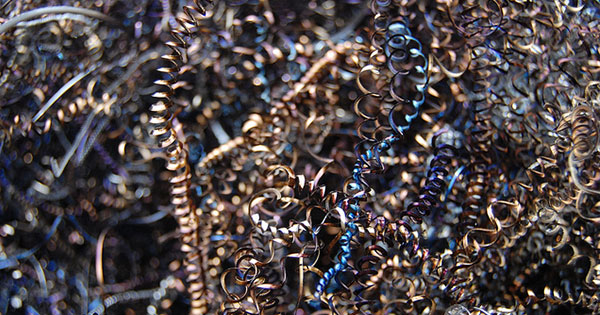
One person’s trash is another’s treasure: sewage, waste piles, and landfills are set to be the unlikely focus of the next gold rush, but we should recognize their social value, too.
In many cases, higher concentrations of precious metals are found in garbage than in commercially mined rocks—and extracting these metals from the bin could prove easier and more profitable than mining, while also addressing our mountainous waste problem.
Gold and other valuable metals are used in a range of everyday items including shampoos, detergents, and clothing, and collect in sewage in sufficient quantities to become worth extracting. Removing metals from sewage carries that additional benefit of making it a more effective fertiliser.
Electronic waste, like cell phones and computers, is the most lucrative, offering a wealth of rare and precious metals. Wealthy countries currently ship much of it to poor ones that lack the resources, infrastructure, and legislation to deal with it safely. As a result, children and other vulnerable members of society use hazardous methods to extract metals, polluting the environment and endangering their health. Needless to say, this is not an efficient way to recycle. Yet, for many large communities in developing countries, these mountains of so-called “e-waste” are their livelihood—and, however imperfect, offer a means of recovering metals that have already been mined from what are often the most ecologically sensitive parts of the world.
As our demand for electronics grows, so too will the value of the increasingly scarce metals they require, as well as the attention paid re-using them.
Tempting as it might be to set up domestic waste-mining industries, we should instead consider investing in the job training and infrastructure needed for efficient metal recovery in the poor countries already doing it. This would benefit them in several ways: Much of the electronic “waste” that arrives in Africa and Asia is still useful—outdated or broken computers can be refurbished for use in schools, for example. And a new, properly regulated recycling industry can bring wealth and opportunity to some of the most deprived people and cities. This is especially important because the rest of the world is catching up with places like the United States and Europe in phone and computer ownership. Dealing appropriately with the resulting waste stream will be vital, and much easier, if the industry is already in place.
Ideally, among the first questions designers and manufacturers should address when creating a new product is how it will breakdown for easy recycling. Only then will we achieve efficient cycling of precious metals.

